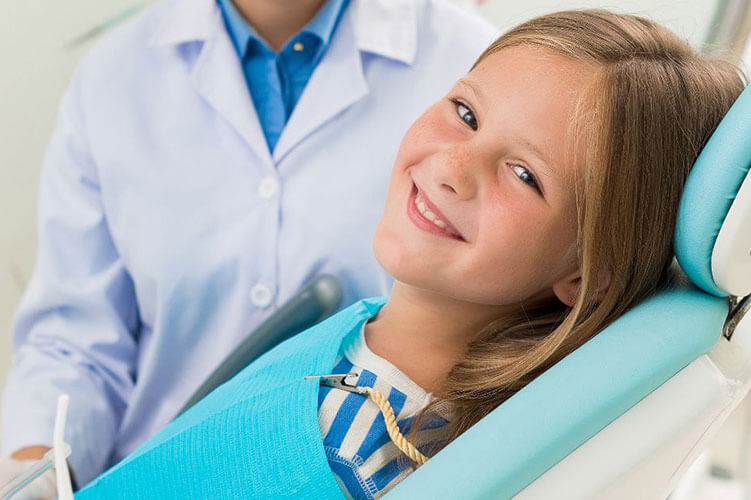St. Lawrence Dentistry is privileged to see many children go from being toddlers to this critical phase of young adulthood (13-17yrs). This is a period marked by changes in their body chemistry and more independence.
Children will make choices in this period, which can positively or negatively affect their oral health. It is up to you as parents and us as your child’s dentist to make them aware of what to expect and educate them on making the best decisions for themselves.
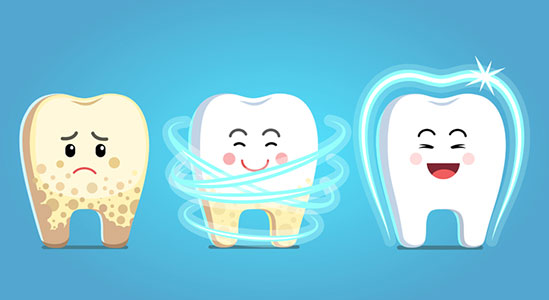
All the permanent teeth usually have some around age 13 (except the wisdom teeth). The second molars are further back than any teeth they have had before, and some teens need reminders to get back when they brush and floss. The wisdom teeth are developing below the gums and make an appearance around age 17. Before this age, your child may experience some discomfort from the growing wisdom teeth buds. In some cases, the wisdom teeth develop earlier than this age and need removal as the jaw has not grown large enough to accommodate them yet. In other cases, cleaning the gum (gingiva) around the wisdom teeth with an ultrasonic instrument can help it settle down. If your child is having discomfort behind their second molar, please book an appointment with Dr. Hawryluk Jr., and he will determine the best approach to take. Once the wisdom teeth have come in, there will be 32 teeth in total, completing the adult dentition. By age 18, the bones of the face and jaw have also neared their developmental completion; however, the face and mouth muscles are still developing.
For more information about wisdom teeth, please visit us here:
Wisdom Teeth – Do They Need To Be Removed?
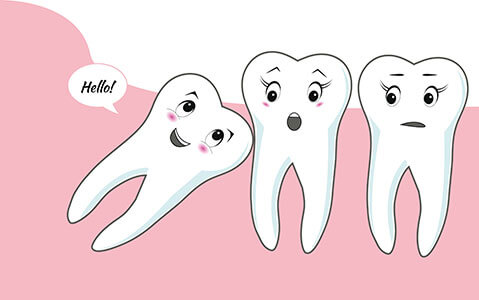
In this age range, your teen must take more responsibility for their well-being. However, some still may need a lot of encouragement and coaching about their oral health from both parents and St. Lawrence Dentistry. Sometimes gentle reminders from parents help whereas in other situations they need more strict decrees from parents. You, of course, know your child best and what tact will work for them. If your child is struggling with home care, please feel free to call St. Lawrence Dentistry ahead of their appointment, and we can set aside extra time at his/her hygiene visit to talk to them and help them see the benefits of oral hygiene. If they understand that oral hygiene can affect the way they look, smell, and feel, they will be more motivated in most cases.

Puberty is usually around ages 11-13 for girls and 12-14 for boys and ushers in oral health changes. Girls often experience inflamed gums as the body’s estrogen increases blood flow to the mouth. The body’s chemistry signals the need for more calories consumed to fuel the mouth and total body’s wide-scale development during this period. However, many teens often like to consume sugary foods that are devoid of critical nutrients- this can have a very negative impact and lead to a weaker bone structure for the rest of their lives. Adolescents must be encouraged to eat foods that will help them instead of bringing them down. Please let us know if you would like Dr. Hawryluk Jr. to go over healthy eating habits with your teen. You may want to review Canada’s food guide with them.
Here is the link to the guide:
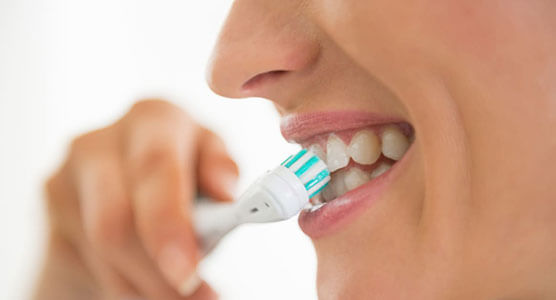
Drinks with a high acidic content such as sodas can hurt teeth. They quickly soften teeth to the point where the enamel can flake off. Sometimes singers and cheerleaders suck on lemons to help clear their throats before they perform. In other cases, adolescents use lemons to mask the taste of other beverages they are consuming. People that consume more than three sugary drinks a day are 62% more likely to have tooth decay. Many teens view drinks like orange juice as very healthy, and they do have genuine health benefits like a high Vitamin C level. However, they sometimes are unaware that consumption should be moderate because they are high in acidity and sugar. If your child insists on having sodas, consider buying the small portion cans and limit them to only a couple per week. If you live in Mississauga, the smaller portions are available at Longos Supermarket in Applewood Plaza. The sugar’s bathing time with the teeth can directly correlate to the erosion level, so it is crucial to consume it over ten minutes or less rather than sip one can throughout several hours. St. Lawrence Dentistry offers treatments to fix dental erosion from acidity. However, the goal is to take preventative measures and not arrive in a situation that needs repair in the first place.
For motivation, you can show your teen examples of dental erosion on the link below.
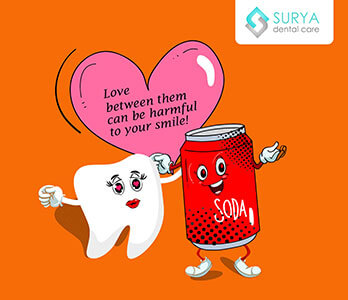
Canker sores in young people are commonly seen at our Mississauga dental office as they happen to one in five people. Their onset can correlate to the hormonal changes during puberty, and their first appearance can be uncomfortable and puzzling to your adolescent child. Canker sores are also called aphthous ulcers are shallow open sores that can appear in many mouth areas. The exact cause is not determined, but are related to hormone changes, stress levels, genetics, and allergies. They are not contagious and usually last for about two weeks before they disappear on their own. Your child may first experience a tingly sensation, and the area will be slightly bumpy and red. Eventually, the lesion bursts into an open sore. You can ease your child’s discomfort during their presence by placing a wet black tea bag next to the site as the tea tannin has a soothing quality. Avoid citrus fruits and cinnamon during this period. Over the counter medications containing benzocaine and eucalyptus can also help. St. Lawrence Dentistry uses our local Port Credit Shoppers Drug Mart at Lakeshore and Maple frequently, and we know they have an excellent selection of products that can help relieve canker sore pain.
Here is their link:
Shoppers Drug Mart – Lakeshore & Maple in Mississauga
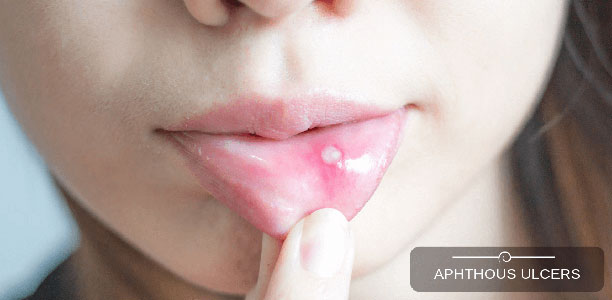
Tongue or lip piercings in this age group are quite common, and most teens are unaware that they can lead to chipped teeth and even blood poisoning and clots. It is rare cases; a tongue piercing can cause the tongue to swell so much that it becomes a real medical emergency. If the piercing needle touches a nerve or vessel, it can lead to paresthesia (loss of sensation) or uncontrolled bleeding. About 20% of people with mouth piercings will develop tooth fractures or gum recession. St. Lawrence Dentistry recommends no piercing in the mouth as none are 100% safe for your adolescent child. However, if they get one no matter the advice they get to the contrary, you can establish some ground rules. Insist they see a certified professional following the strictest guidelines for sterility. Ask questions and ask to see their credentials and what protocols they follow. After the piercing, you should rinse with a chlorhexidine-based wash several times a day for two weeks. If moderate redness, discomfort, or swelling develops, you should immediately contact Dr. Hawryluk or your medical doctor.
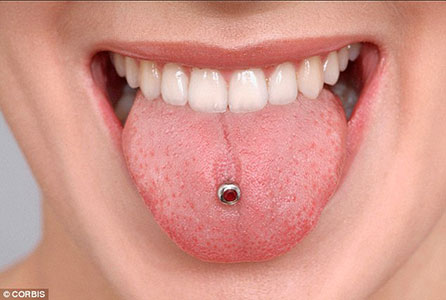
Bulimia is a severe problem for adolescents and is seen frequently at St. Lawrence Dentistry. One glaring marker for bulimia is when the upper incisors back surface is completely smooth and worn down. The repeated regurgitation of stomach acids causes this. The teeth are left in a very soft state after these regurgitation events for several hours and brushing during this period can accelerate the teeth wear. If bulimia is left unchecked, it can transpire into severe medical issues for your children, such as kidney infections and heart irregularities. If your child is under 18 years of age, Dr. Hawryluk can talk to you, the parent, privately and refer your child to proper medical care. St. Lawrence Dentistry will take the appropriate steps with your permission to ensure the teeth are protected. One way is to fabricate thin plastic trays at our office, which protect the teeth from acid while they are worn. Remineralizing solutions can be put in the trays, such as MI paste, further enhancing the protection.
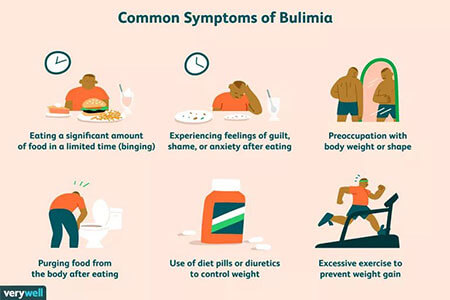
For your child’s safety, smoking and drinking are banned for adolescents by Canadian law. However, they are still common amongst teens. If you suspect your teen may be drinking alcohol, remind them that it is dehydrating and causes decreased salivary flow, which in turn can desiccate the teeth leading to decay. Educate them about the fact that cigarettes lead to bad breath, discolored teeth, and bone loss around teeth. Moreover, in smokers, the blood supply is compromised in the bone surrounding teeth. Dr. Hawryluk repeatedly finds, in many cases, when removing a tooth from a long-time smoker, there is very little blood in the sockets after the extraction due to the compromised vascularity. The jaw nerves are damaged from smoking, and Dr. Hawryluk has found smokers on average need less local anesthetic for dental procedures because of this. You can also remind your teenage child that smoking can decrease their sense of taste and smell, cause poor healing of mouth sores, and sometimes lead to “hairy tongue leukoplakia” (a precursor to cancer). Smokers are three times as likely to lose all their teeth as non-smokers.
To learn more about the effects of smoking and how your medical professionals can help you or your adolescent stop this habit, please visit us here:

The ages of 13-17 are a time of unlimited potential for Mississauga youths and can be a great time of life. We owe it to them to give them the knowledge they need to make the right decisions for both their teeth and their health in general. St. Lawrence Dentistry would like to be your Mississauga Dental Office for your child and your whole family. We are located by Lake Ontario in Port Credit and have plenty of parking and Saturday business hours. Please give us a call and speak to our courteous administrative staff if you would like to make an appointment.
Reference: Your Child’s Teeth, Weidman
- St. Lawrence Dentistry Looks Forward To St. Patrick’s Day! - March 12, 2025
- Understanding Dental X-Rays and Radiation: What You Should Know - January 13, 2025
- Happy New Year from St. Lawrence Dentistry! - December 30, 2024



